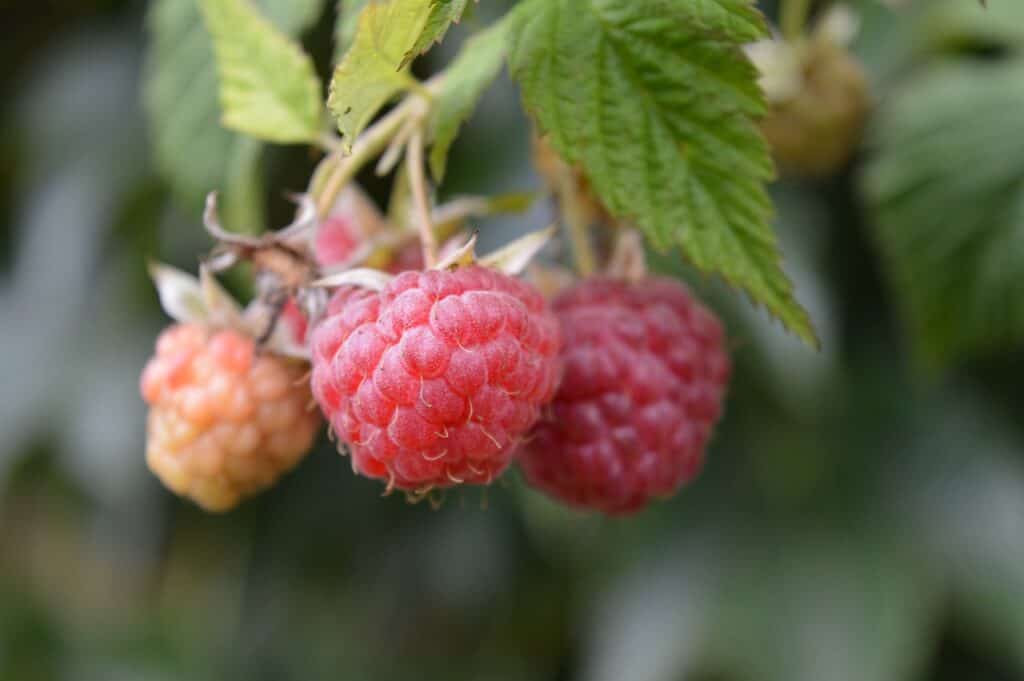Raspberries, known for their vibrant color and sweet-tart taste, are a summer delight for many. However, you may have encountered raspberries that emit an unpleasant odor, leaving you puzzled and concerned about their safety. In this article, we’ll explore the reasons behind raspberries that smell bad, the potential consequences of consuming them, and address related questions about the safety of raspberries with black spots.

Raspberries Smell Bad
You may have been excited to enjoy a bowl of fresh raspberries, only to be greeted by an unpleasant odor. While raspberries are typically fragrant and sweet, there are instances where they can smell bad. This can be attributed to several factors.
Overripeness: Raspberries that are overripe or on the verge of spoiling can emit an unpleasant odor. Overripened raspberries may have a fermented or sour smell, making them less appealing to consume.
Mold and Decay: Moisture and warmth can create ideal conditions for mold and decay to develop on raspberries. Once mold takes hold, it can spread quickly, not only altering the scent but also the taste and texture of the berries.
Microbial Growth: Harmful bacteria and yeast can colonize raspberries when they are exposed to unsanitary conditions. Contamination from unwashed hands or contact with dirty surfaces can lead to microbial growth and the production of foul odors.
Environmental Factors: The environment in which raspberries are grown plays a significant role in their aroma. Soil quality, weather conditions, and the use of pesticides can all influence the scent of the berries. Pesticides, for example, may contribute to an undesirable chemical odor in raspberries.
What Happens If You Eat Bad Raspberries
Consuming raspberries that smell bad or exhibit signs of spoilage can have several potential consequences. While not all consequences are severe, it’s important to be aware of the risks.
Digestive Discomfort: Eating raspberries with a sour or fermented odor may cause digestive discomfort, including nausea, stomach cramps, or diarrhea. This is more likely to occur if the berries are significantly overripe or moldy.
Foodborne Illness: Raspberries contaminated with harmful bacteria or yeast can lead to foodborne illnesses. Symptoms may include vomiting, diarrhea, fever, and stomach pain. Individuals with weakened immune systems are particularly vulnerable.
Unpleasant Taste: Raspberries that smell bad often taste unpleasant as well. Their flavor may be altered due to overripeness, mold, or microbial contamination.
Allergic Reactions: In rare cases, consuming spoiled raspberries can trigger allergic reactions. If you experience symptoms like hives, swelling, or difficulty breathing after eating raspberries, seek immediate medical attention.

Are raspberries that smell bad safe to eat?
Raspberries that emit an unpleasant odor should be avoided. While not all bad-smelling raspberries are harmful, they may be overripe, moldy, or contaminated. It’s best to discard such berries to prevent potential health risks.
Can I salvage raspberries with a mild bad smell?
If raspberries have a mild bad smell due to overripeness, you can use them in cooking or baking to mask the aroma. However, if the smell is due to mold or microbial growth, it’s best to discard the berries.
How can I prevent raspberries from smelling bad?
To prevent raspberries from smelling bad, store them in a cool, dry place, wash them thoroughly before consumption, and handle them with clean hands. Proper storage and handling can help maintain the freshness of your raspberries.
Are raspberries with black spots safe to eat?
Raspberries with small black spots are usually safe to eat. These spots are often due to natural imperfections or harmless environmental factors. Simply remove the affected areas and enjoy the rest of the berry.

